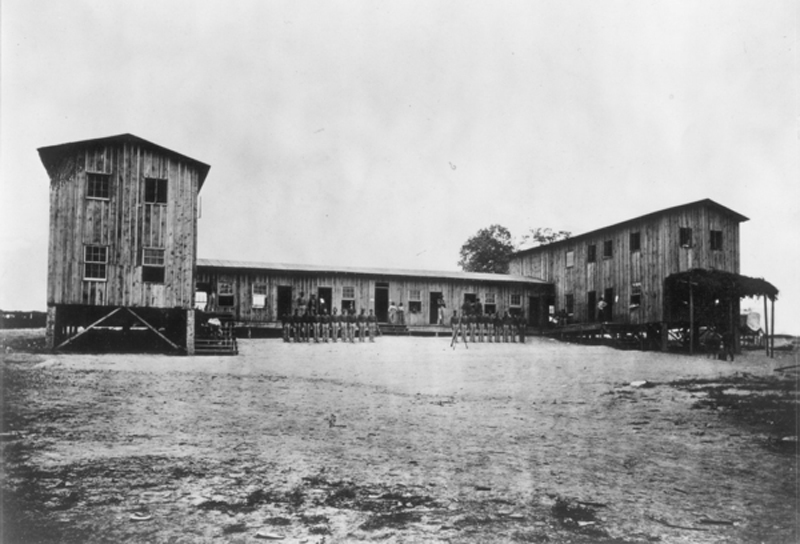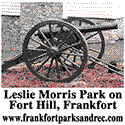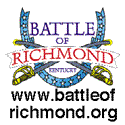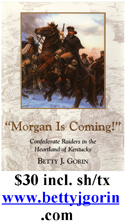|
Mays covers Saltville, new exhibit opened to public at Camp Nelson
A crowd of approximately 100 was on hand for a lecture and exhibit opening Nov. 14 at Camp Nelson.
Dr. Thomas D. Mays, chair and professor at Humboldt State (Calif.) University, spoke on “Camp Nelson, Saltville and the 5th U.S. Colored Cavalry” and the exhibit “African American Refugees at Camp Nelson: Archaeological and Historical Perspectives” was opened to the public.
Mays, author of “The Saltville Massacre,” focused on the first large-scale Civil War battle involving African-American troops from Camp Nelson.
Union Brig. Gen. Stephen Burbridge launched a raid Oct. 2, 1864 to capture Saltville in the mountains of southwest Virginia. Repeated Union attacks were repulsed by Confederate forces under the command of Gen. John S. Williams.
As the sun began to set, Burbridge pulled his troops from the field, leaving many wounded. In the morning, Confederate troops, including a company under the command of Capt. Champ Ferguson, advanced over the battleground seeking out and killing the wounded black soldiers.
A Confederate victory, Saltville is remembered for the massacre of captured and wounded black troops.
Saltville was one of the Confederacy's main saltworks considered vital to the Confederate war effort as the salt was used in preserving meat for Confederate soldiers and civilians.
At the exhibit, materials recovered at excavations at two refugee encampments were displayed.
The National Underground Railroad Network to Freedom provided funding for the exhibit, the excavations and additional archival research to interpret the lives of the African-American women and children who came to Camp Nelson.
Stephen McBride, director of interpretation and archaeology at Camp Nelson, said the massacre at Saltville underlines some of the hardships, prejudices and tragedies that the African-American troops had to endure.
Mays’ new book, “Cumberland Blood: Champ Ferguson’s Civil War,” focuses on Ferguson and his involvement at the Battle of Saltville. Ferguson, a native Kentuckian, was a guerrilla irregular.
|











